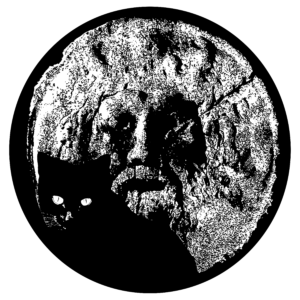“Mary 2.0”, Alexandre Mitchell, 2024 (50 x 70 cm, Indian Ink)
Will artificial intelligence fracture or augment religions? This painting is inspired by the stained glass rose in Strasbourg’s Notre-Dame cathedral. And the Virgin and Child at the main entrance has been transformed into the New Mary from Fritz Lang’s dystopian film Metropolis. Mary’s hand contains the ‘A’ of the Gutenberg Bible. The painting questions the role of technology and religion, particularly the Catholic faith. It begins by showing how the technological invention of the printing press divided part of the Church and led it to Protestantism.

Today, artificial intelligence is on everyone’s lips. It is promoted in all circles and in all commercial and scientific products. Its potential is enormous. However, beyond the obvious fear of losing one’s job and being replaced by machines, many people have the nagging feeling that there is no real creativity in GPT Chat or the various AI image generation software packages available. These are powerful tools, capable in a matter of seconds of searching vast databases all over the world, based on data already produced by HUMANS – could this be a way of getting round intellectual copyright?). The result is a structured patchwork generated that is often imprecise and certainly bizarre when it comes to images. Ultimately, there is no real creativity or artificial consciousness in the process.
Yet real AI, the kind we read about in literature or science fiction films, will happen sooner or later. And it will raise extraordinary questions for religions. What will become of AI in the future? Will it fracture the Church and other religions like the printing press, or will it strengthen them?

